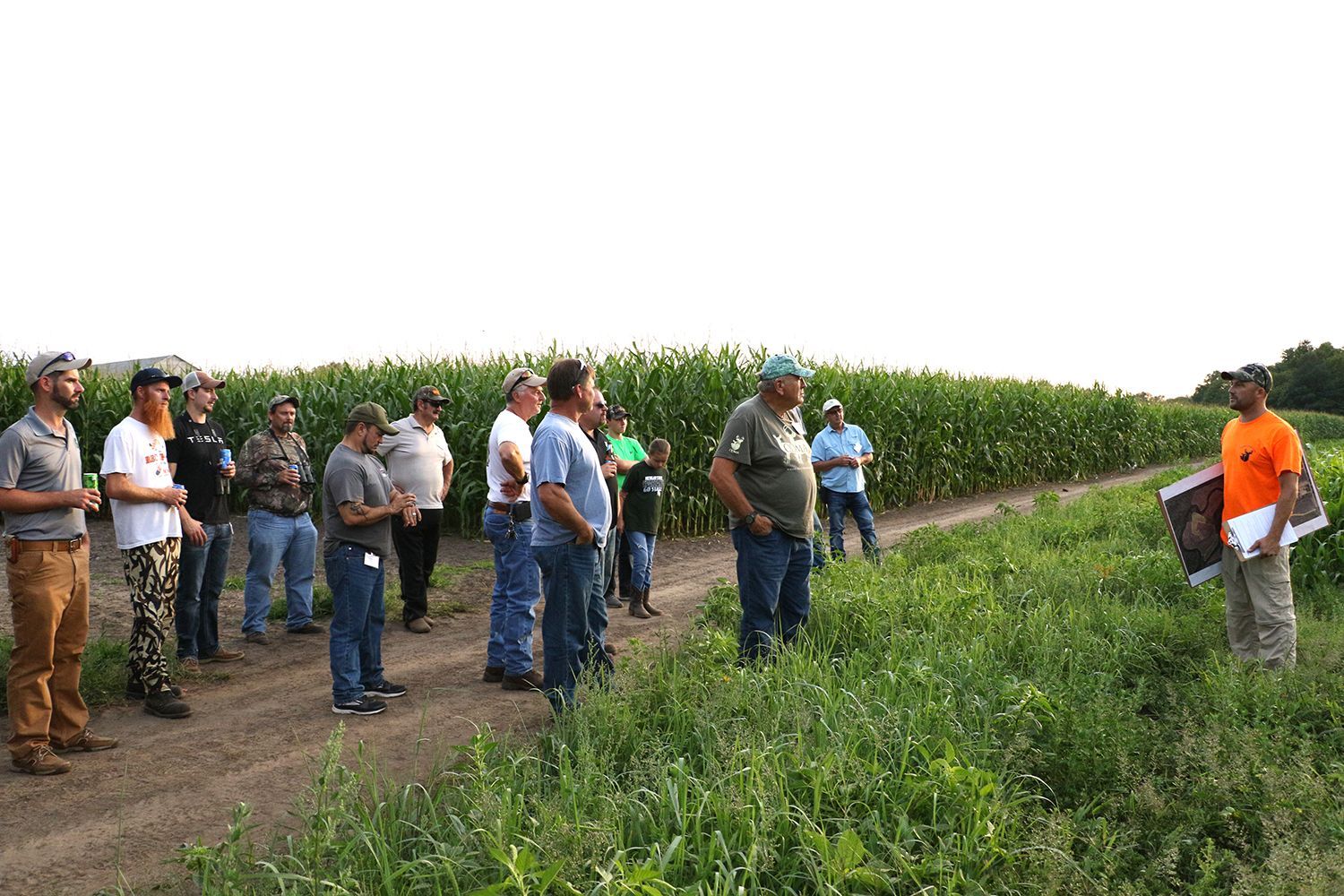2019 Deer Rendezvous Invitations
It’s time for the Deer Rendezvous – an event for Branch and Deer Cooperative members! For the first time, we are hosting the Deer Rendezvous on a Saturday/Sunday in hopes that people that were unable to attend in the past, because of work, can come. This weekend is unlike all of the rest and we hope you can join us. This year, we are honored to have many staff from MUCC , QDMA and DNR join us for another weekend of Whitetails.
When: August 3 – August 4, 2019
Where: Rose Lake Shooting Range

Ashley Autenrieth – Deer Program Biologist, DNR
Autumn Christenson – Huron Pines Americorps Member, MUCC
Alex Foster – Cooperative Specialist, QDMA
Jake Grages – Cooperative Specialist, QDMA
Josh Hillyard – Region 3 Director, QDMA
Makhayla Labutte – On the Ground Coordinator, MUCC
Matt Ross – Assistant Director of Conservation, QDMA
Erik Schnelle – Michigan QDMA President
Morgan Warda – Wildlife Cooperatives Coordinator, MUCC
We’ve done it all from habitat and hunting to policy. This year, QDM Cooperatives and QDMA Branches will take a closer look at their purpose. To be truly successful at reaching mission goals, private landowners and volunteers must work collaboratively. Their action, together, will continue to have the largest impact on Michigan’s wildlife and their hunting experience.
Agenda includes:
- QDMA’s Whitetail Report and mission goals from a Michigan perspective presented by Matt Ross
- Ongoing whitetail research in Michigan
- Significance of in-field data collection
- Presentation from collaborative cooperatives and branches
- The must-have qualities for successful partnerships
- A networking opportunity on the shooting range
- ***On the Ground public land habitat project
*** On the Ground (OTG) is an optional public land habitat project that is taking place at Rose Lake State Game Area, on Saturday morning from 9am to 12pm. We will be trimming and treating honeysuckle on the forest floor, minimizing competition for oak seedlings, which is a direct benefit to whitetails. Lunch will be provided to all who volunteer for the project. We highly encourage you to participate as improving wildlife habitat on public lands in one of QDMA mission goals.
These agenda items highlight QDMA’s 5-year mission goals and what we as Michigan QDMA members are doing to meet them. Your why is important. Each group, cooperative or branch, brings something unique to the table. Depending on group personality, character, resources and passions, we hope to help you better define your niche within the mission. This weekend event should prepare you for a successful 2019 but also help you set goals for carrying out a mission that is bigger than us all: ensuring the future of white-tailed deer, wildlife habitat and our hunting heritage.
If you are a QDMA Branch or Deer Cooperative member that is interested in this event, please REGISTER HERE.
For any questions, please contact Morgan Warda at 517-346-6454 or mwarda@mucc.org.
The post 2019 Deer Rendezvous Invitations appeared first on Michigan United Conservation Clubs.
Recent Posts



